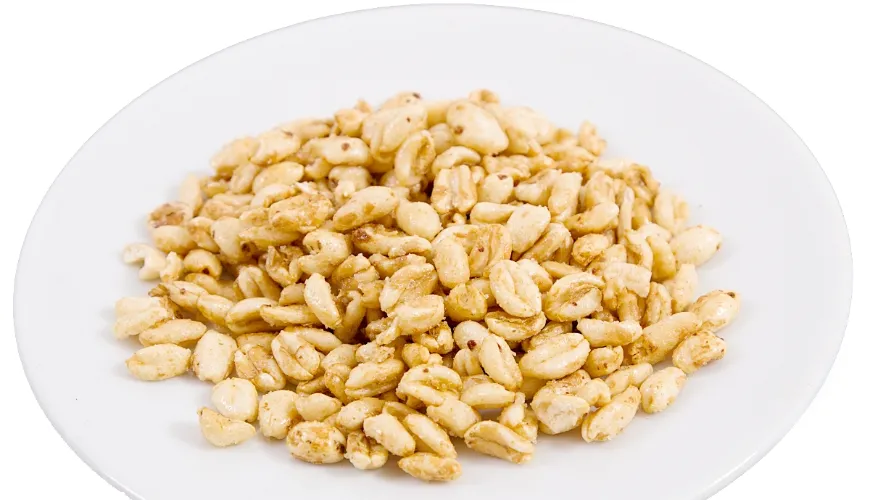
Experiences with Digestive Enzymes: How They Contribute to Better Health

How Can Digestive Enzymes Affect Our Health?
In the world of healthy nutrition and lifestyle, digestive enzymes have been increasingly talked about in recent years. It's not just a new trendy fad. Digestive enzymes play a crucial role in our digestion and can significantly impact how we feel after eating and in everyday life. Many people who suffer from bloating, fatigue, or other digestive issues today share their experiences with digestive enzymes and praise their positive effects. But how exactly do they work and when does it make sense to incorporate them into your life?
What Are Digestive Enzymes and Why Are They Important to Us?
Digestive enzymes are special proteins that help break down food into simpler components that the body can absorb and utilize. Each type of nutrient – carbohydrates, fats, proteins – has its own enzymes that break it down. For example, amylases break down starches, lipases handle fats, and proteases take care of proteins.
Without a sufficient amount of enzymes, our digestion would be significantly slower and less efficient. This could not only lead to feelings of heaviness and bloating but also to long-term ailments such as nutrient deficiencies, fatigue, weakened immunity, or skin problems.
One of the common myths is that digestive enzymes are only needed by people with serious health issues. In reality, however, they can benefit almost anyone who notices that their digestion is not quite optimal – for example, after richer meals, during stressful periods, or with increasing age, when natural enzyme production decreases.
Real Experiences with Digestive Enzymes
When we look at real experiences of users of digestive enzymes, several common themes emerge. People often describe that after starting them, they noticed:
- Relief from bloating and gas
- Reduced feeling of heaviness after meals
- Improved regularity of bowel movements
- Relief from abdominal pain and cramps
- More energy and less fatigue after eating
For example, Mrs. Jana, a mother of two small children, shared her experience on one of the discussion forums: "After every meal, I was bloated like a balloon and felt like I had no energy for anything. After a friend's recommendation, I started taking enzymes, and the change was almost immediate. Food no longer sits in my stomach for hours, I feel lighter and, above all, full of energy."
Similar stories can also be found in more expert sources. According to a study published in the Journal of Clinical Gastroenterology, supplementation with digestive enzymes can significantly alleviate issues such as irritable bowel syndrome or exocrine pancreatic insufficiency.
When Does It Make Sense to Use Digestive Enzymes?
It's not necessary to immediately reach for enzymes at every minor upset. Natural support for digestion can also be achieved by adjusting your diet – including fermented foods, ensuring sufficient fiber and hydration. However, if digestive issues persist, digestive enzymes may be a suitable choice.
People often think of digestive enzymes after a hearty meal full of fats and proteins or when stomach troubles are added to stress. They are also suitable for those with weakened stomach acid production, which is not uncommon, for example, in older people. They can also help during demanding periods full of physical or mental stress and after antibiotics, which can take a toll on gut flora.
It is important to mention that if digestive problems persist long-term, it is advisable to consult a doctor. While digestive enzymes can bring relief, sometimes it's necessary to address deeper causes of the problem.
What to Watch Out for When Choosing Digestive Enzymes?
When choosing, it's important to focus on the quality of the composition and a wide spectrum of enzymes to cover the digestion of all main types of nutrients. Some products contain only one type of enzyme, while others are comprehensive and cover carbohydrates, fats, and proteins.
When reaching for enzymes, it's good to keep a few things in mind: mainly dosage and the right way to use them – usually, you take them before or during meals. Also, note the origin of the enzymes, as some are animal-based, while others can be found in pineapple (bromelain) or papaya (papain). And finally, check if the product contains other helpers, such as probiotics or herbs for digestion support.
An example from everyday life: Mr. Petr, an active athlete and advocate of plant-based nutrition, chose enzymes containing bromelain and papain because they are of natural origin and work well for breaking down proteins, which he primarily obtains from legumes. The result was not only improved digestion but also better muscle recovery after training.
Natural Ways to Support the Production of Digestive Enzymes
When it comes to supporting digestion, many people automatically think of dietary supplements, but believe me, that's not always necessary – often it's enough to rely on natural methods that the body can appreciate even more. A great start is fermented foods like sauerkraut, kimchi, or kefir, which naturally contain beneficial bacteria supporting enzyme production; and if nothing fermented appeals to you, you can also help with bitter foods, like arugula, chicory, or dandelion – their distinctive flavor naturally stimulates the production of stomach juices.
It may surprise you, but the first step to quality digestion begins in the mouth, so thorough and slow chewing is something you definitely shouldn't forget. Add to that regular exercise, which not only benefits overall fitness but also stimulates the intestines, which is essentially a big service to your entire digestion. And finally, perhaps the most trivial but equally important thing: proper hydration – without enough water, the production of digestive juices slows down, which we certainly don't want, right?
As the well-known saying goes: “Chew your drinks and drink your food.” In other words, the more thoroughly we break down food in our mouths, the less work our digestive system will have.
Digestive Enzymes as the Key to Better Digestion
People's experiences show that digestive enzymes can be a powerful ally in the quest for healthier digestion. Whether it's fatigue after eating, bloating, or irregular bowel movements, properly chosen enzymes can bring quick relief. Nevertheless, it's advisable to approach their use consciously – to listen to your body's signals, support your own production of enzymes naturally, and in case of longer-term issues, do not hesitate to seek professional help.
In a world where food quality is changing and our lifestyle is accelerating, taking care of digestion is the foundation of good health. And digestive enzymes may be that small but important step towards feeling better every day.

